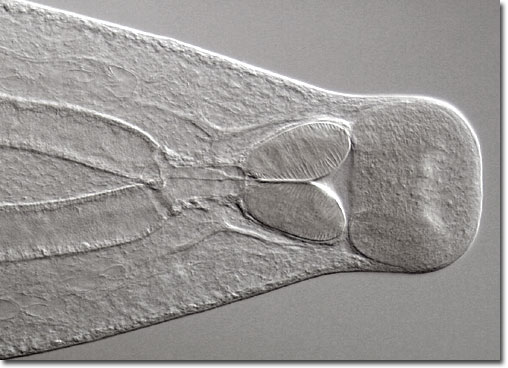|
In their definitive host, Chinese liver flukes inhabit bile ducts of the liver and may grow up to one inch in length. The parasites achieve full maturity only 3 to 4 weeks after they reach their final destination, but may live for as long as 25 years. Small numbers of the flukes may exist asymptomatically in humans and other animals, but large infestations are frequently accompanied with abdominal pain, digestive problems, jaundice, fibrosis, and enlargement of the liver. Known as clonorchiasis, chronic liver fluke infestation is rarely fatal, but can lead to increased susceptibility to dangerous bacteria such as Salmonella.
|
